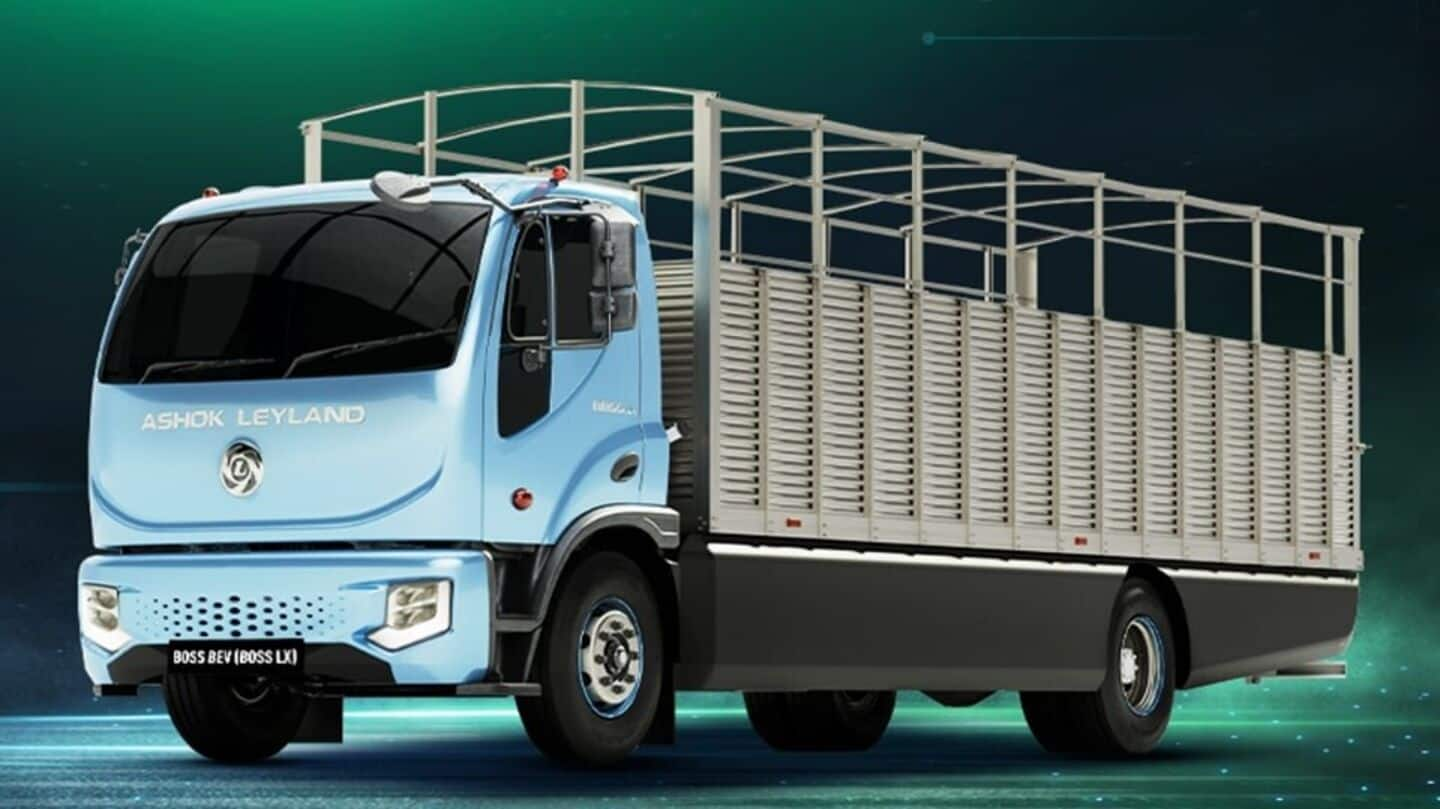
Why India's electric truck makers are struggling to go local
What's the story
India's electric truck industry is facing a major challenge in meeting the government's localization demands. The problem has been exacerbated by low demand for these vehicles. Leading manufacturers such as Tata Motors and Ashok Leyland have failed to pass localization tests, slowing down progress despite their efforts to produce local parts and promote green logistics.
Policy details
Government pushes e-truck makers to comply with localization plan
The Indian government has been pushing manufacturers to comply with an ambitious localization plan. This was discussed in recent consultations between the Union Heavy Industries Ministry and e-truck makers like Tata Motors, Ashok Leyland, Volvo Eicher Commercial Vehicles, and Murugappa-group's IPLTech. The phased manufacturing program (PMP) for e-trucks was introduced under the ₹10,900 crore PM E-Drive scheme in July.
Import restrictions
What is the phased manufacturing program?
The PMP sets deadlines for components that e-truck makers can import. Most of these products and components are currently imported from China. They include an HVAC system, electric compressors for brakes, charging inlets for standard EV chargers, a battery management system, a vehicle control unit, and traction motors. The cut-off date for importing most of these components was September 1, 2025.
Policy adjustments
Government relaxes rules amid China magnet supply cut
In light of the rare earth magnet supply cut from China, the government recently relaxed its stance by allowing e-truck makers to import traction motors with rare earth magnets from Chinese suppliers. The PM E-Drive scheme for e-trucks and e-buses has also been extended by two years till FY28, after funds for these two vehicle segments were not utilized.
Testing delays
No e-truck model passed localization test in over 2 months
Despite the government's push, no e-truck model has passed the localization test in over two months since the guidelines were announced. This shows that the shift to localization is slow. The government has now asked e-truck makers to speed up this process as it will show what local parts are used in e-trucks and e-buses.
Local production
Auto component makers ramping up production of critical parts locally
Indian auto component makers have started producing critical parts locally. Companies like Sona Comstar and Toyota Kirloskar Auto Parts Ltd are manufacturing traction motors and trans-axles for EVs in India. These products are part of the government's ₹25,938 crore production-linked incentive scheme for automobiles and auto parts, which mandates localization criteria of 50% spare parts and raw materials sourced in India.
Market hurdles
Transitioning from diesel models to e-trucks costly for businesses
E-truck makers have cited demand uncertainty as a reason for their slow transition to local components. However, the government has countered this by saying companies using trucks in ports, steel, and cement sectors are willing to switch to green logistics. Transitioning from diesel models to e-trucks is also costly for businesses as these vehicles are 20%-50% pricier than their diesel counterparts.